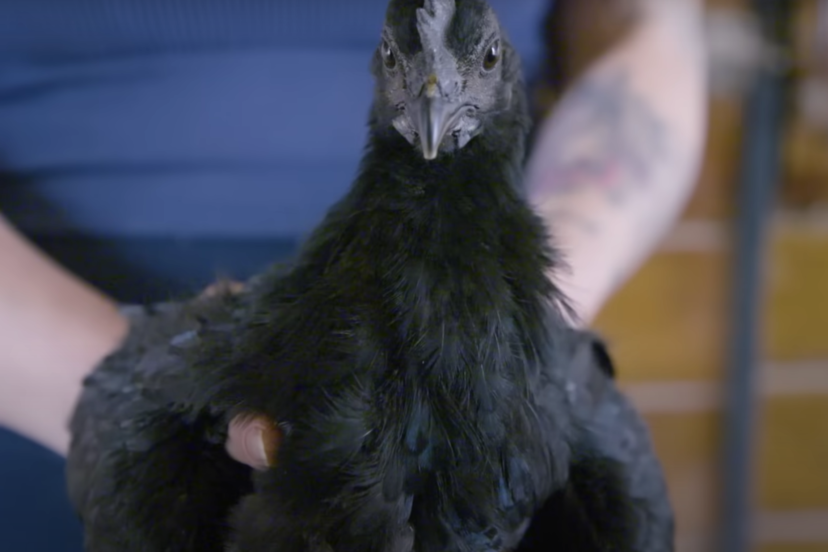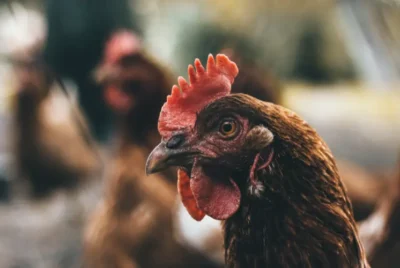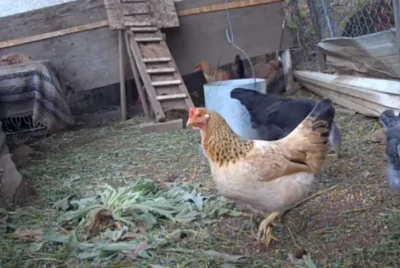Black Diamond Chicken: A Comprehensive Breed Insight
Curious about black diamond chicken? These birds stand out with their intriguing black feathers and are prized for more than their looks – they’re also reliable egg layers. If you’re considering adding black diamond chicken to your flock, I will provide essential insights into their care, behavior, and why they might just be the unique breed you’re looking for.
The Allure of Black Diamond Chickens
Black Diamond Chickens are truly captivating creatures, with their striking black feathers and unique beauty. Not only do they stand out with their appearance, but they also lay beautiful cream-colored eggs, adding to their allure. These birds represent the rich diversity of chicken breeds and are admired by poultry enthusiasts worldwide.
Taking care of Black Diamond Chickens involves understanding their specific needs and preferences. They thrive in free-range environments and have distinct dietary requirements. Proper care and attention contribute significantly to their well-being and productivity, enhancing their charm beyond just their looks.
Why Is It Called Black Diamond Chicken?
So, what’s in a name? For the Black Diamond Chicken, its name mirrors its luxurious aesthetics and unique attributes. The breed owes its name to its Ayam Cemani genetics, a breed renowned for an all-black appearance, which lends the Black Diamond Chicken its striking black feathers. The striking black feathers, accentuated by touches of copper or blue, enhance the aptness of the name.
But the name does more than just highlight the breed’s unique plumage. It also brings attention to the rarity and remarkable features of the Black Diamond Chickens. Much like the precious stone this breed is named after, each bird is a unique blend of characteristics and traits that set it apart from other chicken breeds.
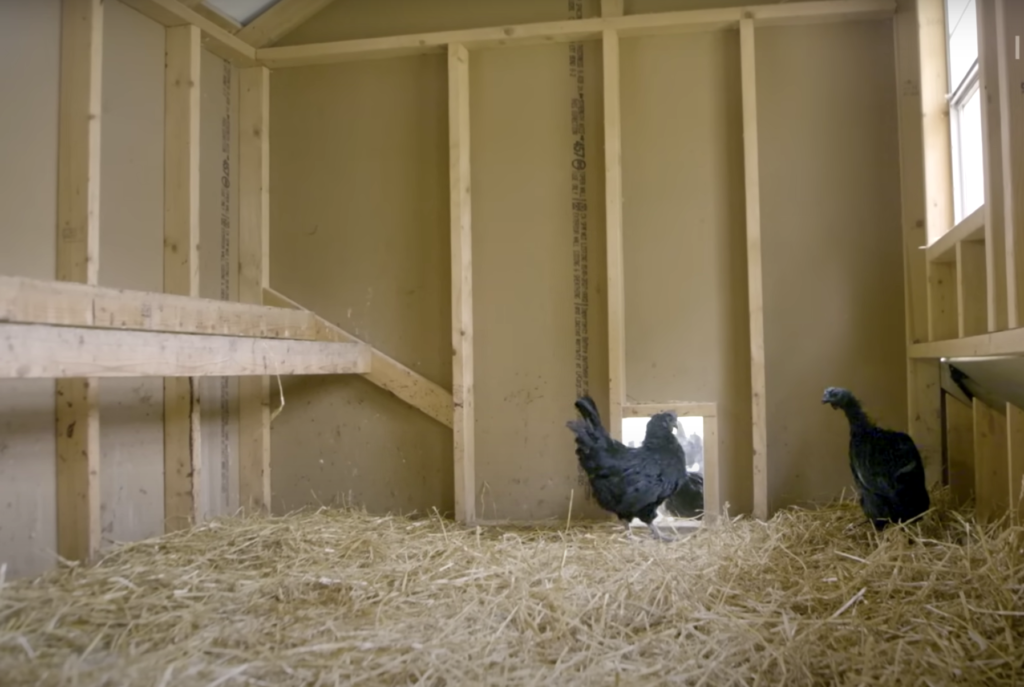
Origins of the Black Diamond Chicken Breed
The story of how the Black Diamond Chicken breed came to be is as captivating as the birds themselves. The primary architect behind this intriguing breed is Danny Eiland, a seasoned poultry geneticist and the former owner of S&G Poultry. His vision and expertise played a pivotal role in the development of the breed, which is a confluence of diverse chicken breeds.
The lineage of Black Diamond Chickens includes influences from various esteemed breeds. The breed inherited distinct traits from:
- Plymouth Rock (maternal lineage)
- Rhode Island Red (paternal lineage)
- Ayam Cemani
- Silkie
These influences have resulted in the unique characteristics that define the Black Diamond Chickens today.
A Genetic Tapestry: From Ancient Roots to Modern Breeding
The Black Diamond Chicken breed is a fascinating tapestry woven from a rich genetic lineage. The breed carries the robustness and egg-laying capacity of the Rhode Island Red and unique features like black skin and five toes from the Bantam Silkies. This combination of unique traits from different breeds culminates in the distinct Black Diamond breed we know today.
Moreover, the breed’s signature deep black hue is a consequence of fibromelanosis, a genetic condition causing heightened melanin production. This genetic trait doesn’t merely influence their appearance but also contributes to the breed’s adaptability. Black Diamond Chickens can be crossbred as seen with the Diamond Black D-109, but careful consideration of the breed’s genetics is crucial to predict the traits of the progeny.
The Role of Selective Breeding in Perfecting the Breed
The development of the Black Diamond Chicken breed underscores the potential of selective breeding. Danny Eiland’s expertise and dedication led to the careful selection and mixing of traits from esteemed breeds like the Bantam Silkie, Plymouth Rock, and Rhode Island Red. The aim was to incorporate superior characteristics, enhancing the Black Diamond Chicken’s elegance and sociable nature.
So, through this careful selection process, the breed inherited its profound blackness from the Ayam Cemani and its soft, silk-like feathers from its Silkie heritage. Today, breeders are dedicated to preserving the Black Diamond Chicken’s genetic diversity and distinctive features, including their iconic black plumage and renowned flavor.
Physical Traits of Black Diamond Chickens
Black Diamond Chickens are a breed that stands out, thanks to their distinct physical traits. Their black feathers and skin, a genetic trait known as fibromelanosis, and an additional fifth toe, set them apart from other chicken breeds. These unique features not only add to their beauty but also contribute to their resilience and intrigue.
Their organs and skin are black due to a genetic mutation known as fibromelanosis, primarily influenced by the endothelin 3 gene. This gene, which is a part of their genetic makeup, controls dermal melanosis and promotes the migration of melanoblasts towards skin cells, resulting in the breed’s distinct black pigmentation.
Despite their predominantly black plumage, some Black Diamond Chickens also exhibit a green sheen due to iridescence in sunlight and may also have a sprinkling of brown feathers, while their comb, wattles, and tongue are characteristically black.
Black Diamond Chicken Tip to Toe
The Black Diamond Chickens stand out due to their extensive black pigmentation. This trait extends beyond their feathers to their:
- skin
- connective tissues
- muscles
- organs
- bones
Thanks to a genetic trait known as fibromelanosis. This extensive pigmentation gives the breed its unique name and sets it apart from other chicken breeds, making them truly one of a kind.
Alongside their rich black coloration, Black Diamond Chickens are distinguished by a unique combination of genetic traits such as having an extra toe and exhibiting a mixture of black and brown feathers, some with copper or blue lacing. These traits, attributed to the influence of the Bantam Silkie breed, further enhance their sophisticated appearance.
Their elegant and shimmering iridescent feathers captivate enthusiasts and onlookers alike, while their average body weight varies with roosters typically heavier than hens, thereby affecting their size and physical stature within the breed.
Feather and Egg Color
The intricate coloration of the Black Diamond Chickens extends beyond their black feathers. Some carry a sprinkling of brown feathers, and their black feathers may feature copper or blue lacing, as well as specks of orange and a green iridescent sheen. This complex coloration adds depth to their allure and sets them apart as beautiful birds with a unique appearance.
The varied color palette of Black Diamond Chickens extends to their eggs as well, which are of a light brown color. Despite their fascinating coloration, these chickens are not just for ornamental purposes.
A Black Diamond Chicken is capable of laying up to 3-4 eggs per week, approximating an annual egg production of up to 200 eggs. This productivity, combined with their unique appearance, makes them a valuable asset in any flock.
Characteristics of Black Diamond Chickens
Beyond their captivating physical traits, Black Diamond Chickens are also known for their unique behavioral characteristics. They are suitable for first-time poultry keepers due to their beginner-friendly nature and are also well-suited for families because of their gentle temperament. These chickens display enchanting personalities and are:
- Curious and docile
- Thrive in social settings
- Can bond deeply with their caretakers
- Demonstrate the ability to recognize individuals and respond to their names
Black Diamond Chickens typically do not exhibit aggression towards humans. While they may initially be shy, they can develop trust with regular interaction and gentle handling. This means that with patience and care, they can become friendly companions, adding to the joy and experience of raising poultry.
Temperament
Black Diamond Chickens are known for:
- Their docile temperament, which makes them a non-aggressive and pleasant addition to any flock
- Their inherent curiosity, which drives them to explore their surroundings and makes them engaging and interesting
- Their gentle nature, which makes them a joy to observe and interact with
While they may be shy around humans initially, with gentle handling and regular interaction, they can develop trust and even show affection towards their caretakers. This trust and affection are not just one-sided. The breed’s playful antics and friendly conduct enhance their reputation as flock favorites and attest to their charming and curious personality traits.
Environmental Adaptability
One of the admirable characteristics of Black Diamond Chickens is their adaptability. They thrive in free-range settings, engaging in natural behaviors such as foraging, but are also quite adaptable to more confined coop environments. This flexibility makes them a convenient choice for a variety of living conditions, from spacious farmyards to suburban backyards.
While Black Diamonds manage well in varying climates, from warm to cooler regions, they do need protection from extreme conditions to maintain good health and productivity. The provision of a farm-like space with access to natural elements promotes better social dynamics within a flock of Black Diamond Chickens and allows them to exhibit their full range of behaviors.
Caring for Your Black Diamond Flock
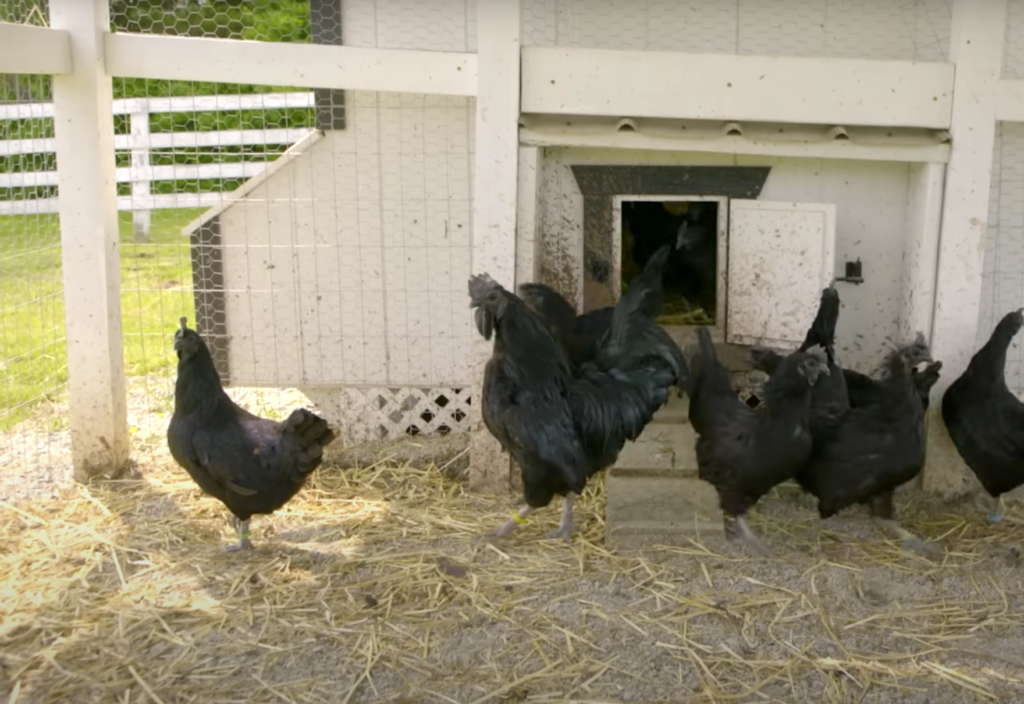
Raising a flock of Black Diamond Chickens is a rewarding experience, but it also comes with its unique set of responsibilities. From providing suitable housing to meeting the breed’s nutritional needs, proper care for your Black Diamond flock involves understanding their needs and preferences.
Routine inspections of the coop should check for:
- wear and tear
- pests
- signs of disease
- leaks
- possible predator entries
During winter, the coop should be insulated and may require heat lamps, whereas in summer, proper ventilation and the possible use of fans are important to keep the chickens comfortable. Pine shavings are recommended as a bedding material in Black Diamond Chickens’ coops for efficient waste management.
Offering appropriate housing and managing the farm effectively is vital for the site owner to foster a thriving environment for your chickens.
Nutritional Needs and Diet Preferences
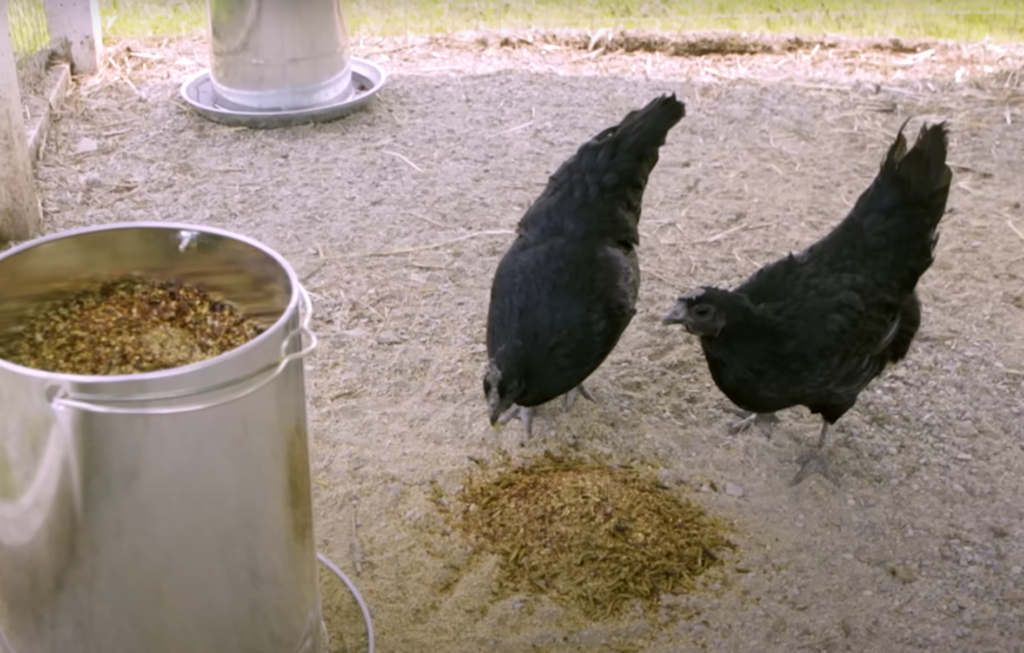
A balanced diet is key to maintaining the health and productivity of Black Diamond Chickens. While they display self-sufficiency through their enthusiastic and excellent foraging abilities, it’s still important to supplement their diet with grains and other feeds to ensure optimal nutrition.
Moreover, the core of a Black Diamond Chicken’s diet should be premium commercial chicken feed, with an average consumption of approximately 1/4 to 1/3 pound per bird per day.
Also, fresh, clean water must always be available for Black Diamond Chickens, with waterers cleaned and refilled regularly to support their hydration needs.
A balanced diet not only maintains the health of Black Diamond Chickens but also supports high egg productivity, with some strains producing over 310 eggs by 74 weeks of age, without any special dietary needs beyond standard balanced chicken nutrition.
Housing and Space
When it comes to housing, each Black Diamond Chicken should have at least 4 square feet of space within the coop and 10 square feet in the run. Coop design needs to include sturdy roosting poles and one nest box per 4 to 5 hens. Security measures like predator-proof locks and hardware cloth are essential to safeguard against predators.
The coop should be placed in a location with a balance of sunlight and shade, incorporating strong fencing and deep mesh layers to protect against predators.
Health and Wellness
Maintaining the health and wellness of your Black Diamond Chickens involves:
- Preventive measures
- Early detection of illness
- Regular sanitization of the environment and tools
- Quarantine procedures for new or returning birds to protect the flock from disease.
Black Diamonds commonly experience health issues such as respiratory or fungal infections. These ailments require prompt veterinary attention to ensure the birds’ well-being. Prompt treatment is crucial when illness symptoms, such as those from respiratory or fungal infections, are detected.
Familiarizing Black Diamonds with human interaction from a young age fosters comfort and engagement with caretakers. Chickens that are gently handled consistently are more likely to seek out human company and display trust.
How to Acquire Black Diamond Chickens
Once you have understood the allure, traits, and care requirements of Black Diamonds, you might be wondering how to acquire these remarkable birds. Before proceeding with the purchase, it’s vital to assess the bird’s health, looking out for signs of vigor and any potential health concerns.
Also, inquire about a bird’s lineage to ensure it has the desirable traits of Black Diamond Chickens that are consistent with the breed standards.
To ensure that you bring home healthy and quality Black Diamond Chickens, follow these steps:
- First, seek references from the seller and verify the bird’s vaccination history to confirm responsible breeding practices.
- If possible, visit the seller’s location in person to assess the living conditions and the care that the chicken has received.
- Carefully evaluate and consider all aspects of the purchasing process.
Where to Find Black Diamond Chickens
Black Diamond Chickens are available for purchase in three different options:
- Hatching eggs: This option allows you to witness the entire lifecycle, from egg to adult.
- Day-old chicks, including day-old cockerel chicks and day-old hen chicks: With day-old chicks, you have the opportunity to nurture the chickens from a very young age.
- Mature reared pullets: If you prefer a straightforward start to your Black Diamond flock, mature reared pullets are the ideal option.
Each option offers a unique experience depending on your preferences and goals.
Regardless of your choice, it’s imperative to source your Black Diamonds from trustworthy breeders or hatcheries. This ensures that the birds have been raised under appropriate conditions and have received the necessary care and vaccinations.
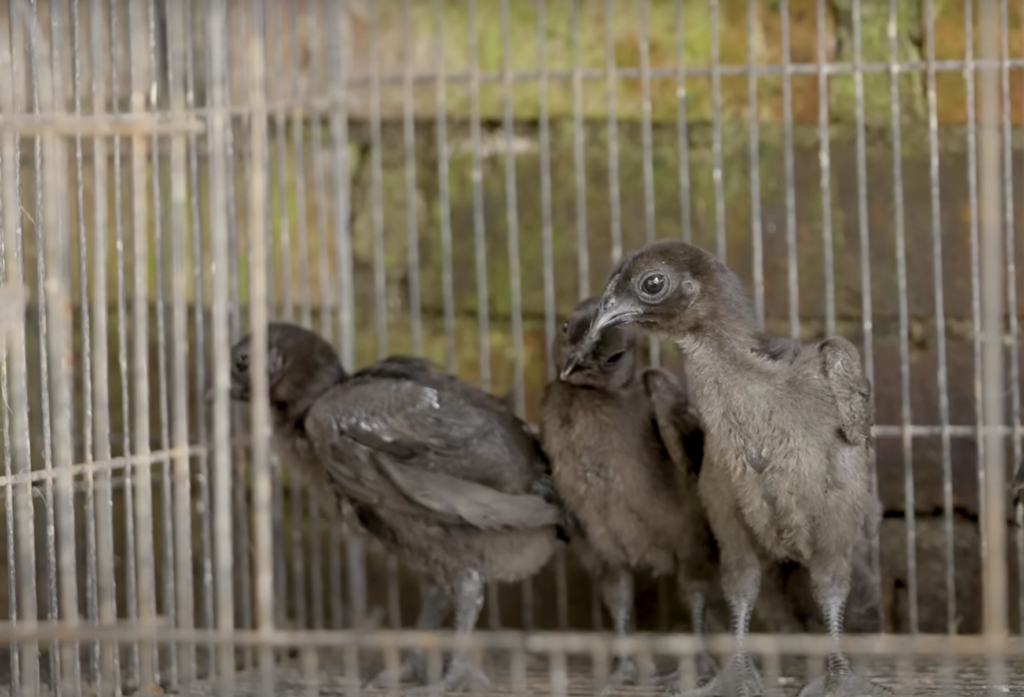
Evaluating Quality and Health Before Purchase
Before welcoming your Black Diamond Chickens home, it’s crucial to carry out a thorough health examination. This includes examining:
- the comb
- beak
- eyes
- feathers
- crop
- legs
- feet
- vent
Bright, alert eyes rule out serious issues like Marek’s disease, while a mushy crop indicates a healthy bird. Also, check the feathers for glossiness and tightness, and look for parasites like lice, fleas, and mites.
Examine the Black Diamond Chickens for the following:
- Legs and feet: Look for uniformly colored scales and signs of bumblefoot.
- Vent: It should be pink and moist, especially for laying hens.
- Parasites or irritation: Check for any signs of parasites or irritation.
- Vaccination schedule: Confirm that a tailored vaccination schedule has been developed with a veterinarian and verify that the chickens have received proper vaccinations.
Summary
Black Diamond Chickens are a unique and intriguing breed, known for their beautiful black feathers, gentle temperament, and adaptability to various conditions. From their captivating origins to their distinctive physical traits, they indeed live up to their name’s allure and rarity. Whether you’re a first-time poultry keeper or an experienced breeder, these birds are bound to add a touch of elegance and intrigue to your flock. So, are you ready to embark on the rewarding journey of raising Black Diamond Chickens?

